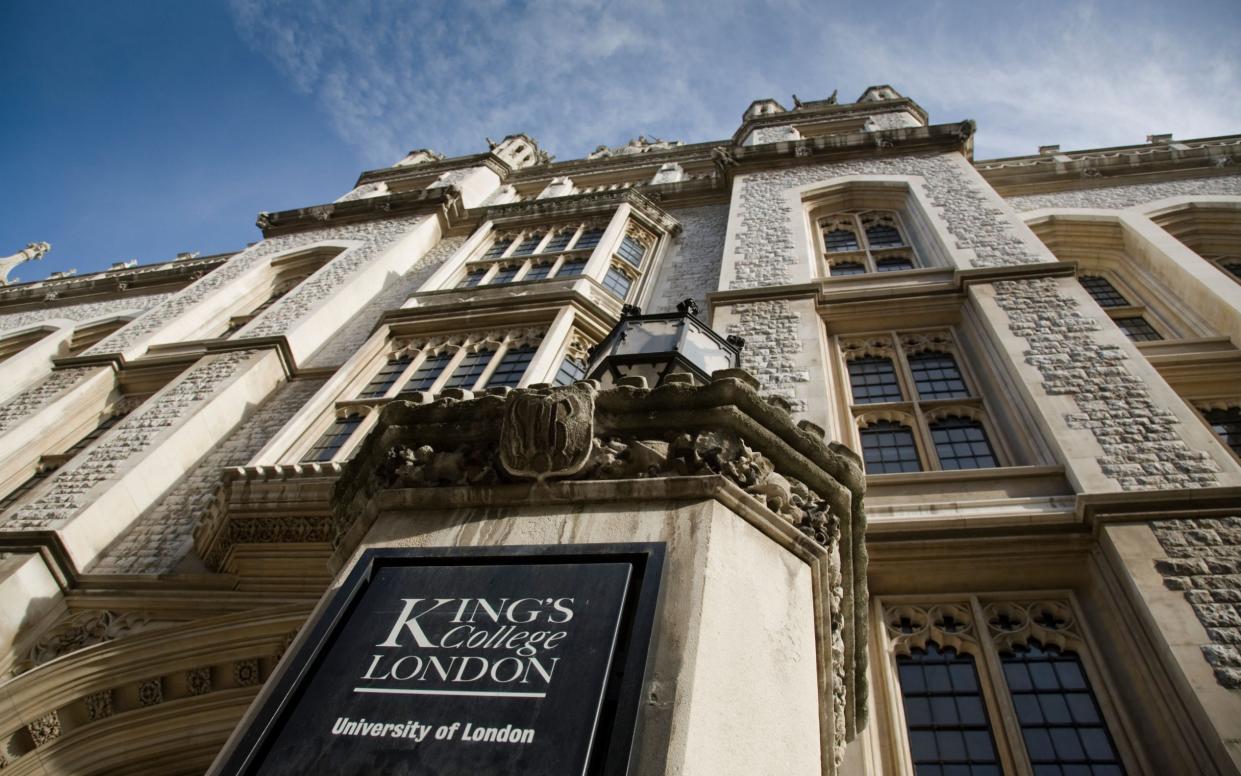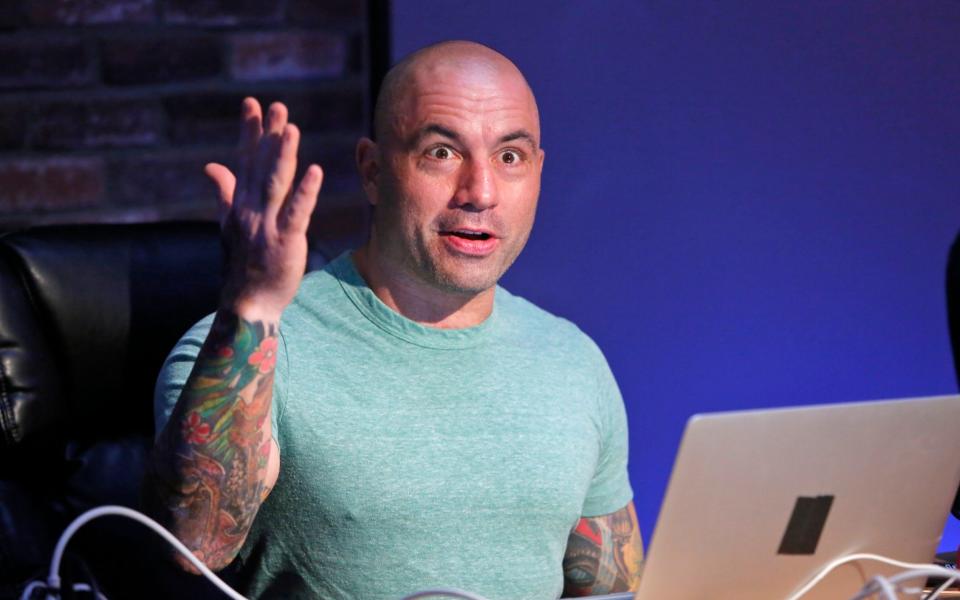Bias towards the Left is endemic in the civil service – and my recent experience proves it

I wrote recently about a King’s College counter terrorism course for civil servants. A former civil servant myself, I attended with others from the Foreign Office, Home Office, Ministry of Justice and Ministry of Defence. The three-day course entitled “Issues in Counter Terrorism” was a deeply, existentially depressing experience.
“Prestigious” educational institutions are delivering politically biased, anti-government training, amounting to indoctrination. It confirmed my fears – that extremism and terrorism are misunderstood by civil servants to the point of being a national security risk.
Sir William Shawcross conducted the latest Government commissioned review into Prevent, the UK’s counter terrorism strategy. He was discredited by a King’s College lecturer who derogatively described Shawcross as “the type of person who would say all current counter-terrorism professionals are woke…He is of that ilk.”
The evidence-based recommendations from his review were also contradicted. Right-wing extremism was discussed disproportionately, despite Islamist extremism being by far the most common category. During the course, there was no mention of immigration being relevant to terrorism in the UK, except as a view “given by the right wing”. Conservative or politically right-leaning views and right-wing extremism were sometimes referenced interchangeably.
One lecturer demonstrated academia’s now commonplace inclination to suppress views that are to the right of centre. “To what extent should [commentator] Joe Rogan and [writer] Douglas Murray be suppressed? They have millions of followers. To de-platform them would cause issues. So, society needs to find other ways to suppress them.” It is possible the lecturer may not have intended that to be as sinister as it sounds. But what did he mean?

All the civil servant participants were given a topic to research and present. One attendee said her brother had been radicalised and fought in Syria for Islamic State (ISIS). She argued Prevent is inherently racist because it focuses on Islamist extremism. She said the mere mention of Islamist extremism makes Muslims “feel uncomfortable”. I raised the point that nearly 70 per cent of terrorist attacks in the UK since 2018 have been Islamist. Similarly, 70 per cent of lung cancer cases are caused by smoking. It would be absurd to avoid mentioning this in the study of cancer so smokers don’t feel uncomfortable. This comparison was not well received.
Later on, we were shown an ISIS propaganda recruitment video filmed in Syria. The same attendee’s face lit up. Laughing and pointing at the jihadi in the video, she exclaimed: “He used to go to my school! I know him!” Mouth agape, I looked around the room for reactions to yet another disclosure involving personal links to ISIS terrorists. I appeared to be the only one to find this extraordinary.

Since my article, questions of impartiality and outside influence have been asked by Douglas Murray. King’s College has accepted tens of millions from Qatar. This is not the only university Qatar has financed. Middle East Forum posits Qatar as being the “single largest foreign donor to American Universities, donating at least $4.7 billion [£3.7bn] between 2001-2021”.
What do they ask for in return? This is unclear from the outside. But as Qatar has been considered the propaganda machine for political Islamism, with links to Hamas and the Muslim Brotherhood – I find this deeply concerning.
In the introduction to the course, labelling an organisation as “terrorist” was described as a problem because it “implies a moral judgement”. Nothing was said about why a moral judgement might be appropriate.
Without anyone providing an opposing standpoint, we were also taught the adage, “one man’s freedom fighter is another man’s terrorist”. When I put to the room that despite subjectivity, we should be able to come up with a collective understanding of what terrorism is, I received nothing but blank stares.
Another slide read, “Terrorism is not the problem, rather the systems they oppose are terrorist.” This was symptomatic of postmodern identity politics, and here it was, within counter-terrorism education. Everything was viewed through a lens of power. Moral relativism was the default position.
There was an irony to being surrounded by civil servants who appear to hate the concept of the State. As young professionals, they represented a microcosm of the views emanating from British universities: when it comes to extremism and counter terrorism, the State is not to be trusted.
The head of Security Studies at King’s College read concernedly, “Problems of Definitions: Labelling a group terrorist can increase the state’s power.” The civil servants nodded in agreement. The visiting speakers were political heavyweights. Possessing genuine expertise with interesting anecdotes, their past responses to crises like the “Northern Ireland Troubles” were referenced frequently. Yet I couldn’t help but feel many of their insights were lost by the audience.
In the Jewish Chronicle, a King’s College spokesperson defended their position and in response to my initial article said: “Attendees were taught by eminent experts using impartial and evidence-based resources in an environment where different theories, concepts and questions are shared to prompt discussion.”
Academic freedom to criticise, scrutinise and analyse government positions and policy is central to a liberal democracy. Critical thinking is paramount. But the course was not conducive to it. Diversity of thought is a prerequisite to healthy debate. Many of the lecturers delivered strongly biased views. The problem was they were often masquerading these views as truisms. Many delivered left-leaning standpoints without offering alternative views or evaluating them. The civil servants did not appear to question them, either because they agreed with them or perhaps because they did not realise they were up for discussion. The atmosphere in the room seemed to be one of not thinking but also not needing to think.
The lack of impartiality and the ideology underpinning this counter terrorism course was consistent with my overall experience in the civil service. Identity politics and political bias towards the Left are endemic. This is the default position and is pervasive throughout meetings, communications, training and most colleague interactions. Questioning the status quo can be met with silence, alienation or, at worst, explicit judgement.
We are left with the question: either King’s College did not achieve the healthy debate it claims it was aiming for, because the attendees had no contrary views. Or, if anyone held contrary views, why were they too reluctant to voice anything which countered the narratives we were being presented with?

 Yahoo News
Yahoo News 
